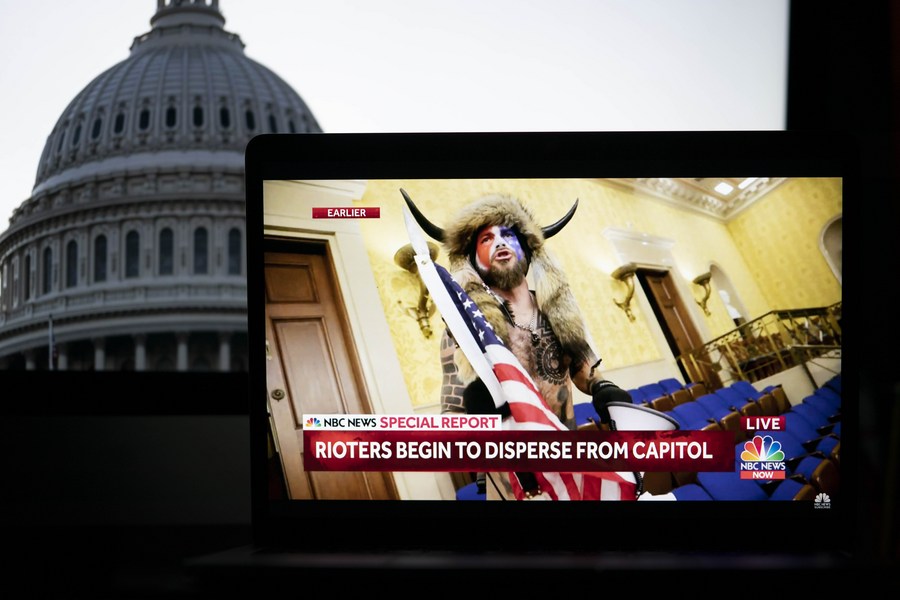January 6 — a day that scarred US 'democracy'

More than one year since the US Capitol riot on January 6, 2021, the country is still feeling the pain of political division. The attacks ripped off the Band-Aids on US democracy all at once, exposing its wounds and vulnerability. Indeed, the bomb threats, the storming and looting and the gunshots culminated in great skepticism about US democracy at home.
The latest poll by Quinnipiac University on the the first anniversary of the assault showed 58 percent of those surveyed believe the nation's democracy is in danger of collapse, and 53 percent said they expect political divisions in the country to worsen over their lifetime. The poll also brought bad news for President Joe Biden, whose approval rating has tumbled to 33 percent. That is a real wake-up call for many still obsessed with the supremacy of US democracy.
One year after the confirmation of his election, Biden is still looking over his shoulder, fearing someone from the Republican Party may take his seat in the Oval Office. His worries are well-founded. About 21 million Americans still believe Biden did not win the presidency, but stole it. Legal challenges to the election results are still filed from time to time. States have leveraged public distrust to enact laws that empower partisan legislatures to intervene in election processes.
The first anniversary turned out to be a platform for the US President to put one man and one party in the crosshairs. Biden came just short of directly calling Trump a loser when identifying him as "a defeated former president". He accused his predecessor of rallying and orchestrating the assault and watching all the violence happening on a TV screen. He labeled the mob as "insurrectionists" defying the will of the people.
Those rioters were designated as extremists, terrorists or militia affiliates, while in fact around 90 percent of the rioters have no link with militia or far-right organizations according to a professor at the University of Chicago. About 26 percent of those charged were business owners; an additional 28 percent were white-collar workers. In this incident, democracy is used more like a tool for political fighting.
America has been against America long before the Capitol riot and all the political drama unfolding in year since. Red and blue states have taken separate paths and denounced each other in the fight against COVID-19, with one based on science and confidence in masks and vaccines and the other riddled with conspiracy theories. The Build Back Better Act proposed by Democrats to upgrade essential infrastructure failed to pass in the Congress even after multiple attempts to reconcile with the GOP. While going to any lengths to win, the parties are also forcing Americans to think and act along party lines, leading to diametrical views on almost every major issue.
Americans have come to learn the progress in life touted by politicians is nothing but a walk on the treadmill. Almost $770 billion will be pumped into the defense industry of this unrivaled military power with the passing of the new National Defense Authorization Act, even as more than 7.5 million people are living without federal jobless benefits.
Cases of gun violence hit new highs year after year, taking more than 120 lives on a daily basis. Ordinary people vent their anger on other races and politicians. About 40 percent of Republicans now believe violent action against the government is sometimes justified.
The "City Upon a Hill" may find itself fighting an uphill battle. According to the Quinnipiac University poll, 53 percent of Americans think it is either very likely or somewhat likely there will be another attack like the one that happened at the US Capitol. If history teaches anything, there is simply no solution other than earning the trust of the people.
"They failed," Biden said during the anniversary event. But what really failed is US "democracy" itself.
No comments:
Post a Comment